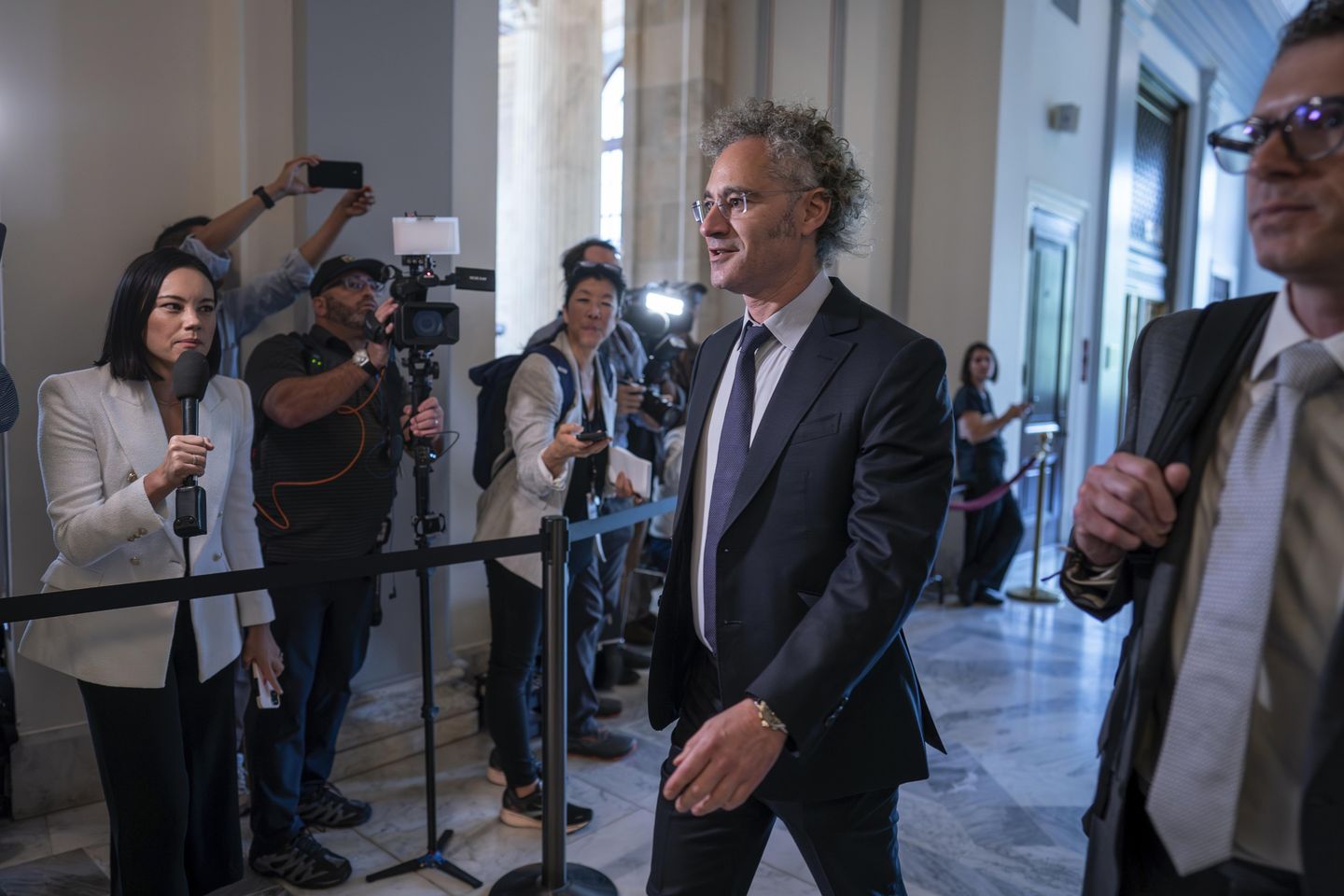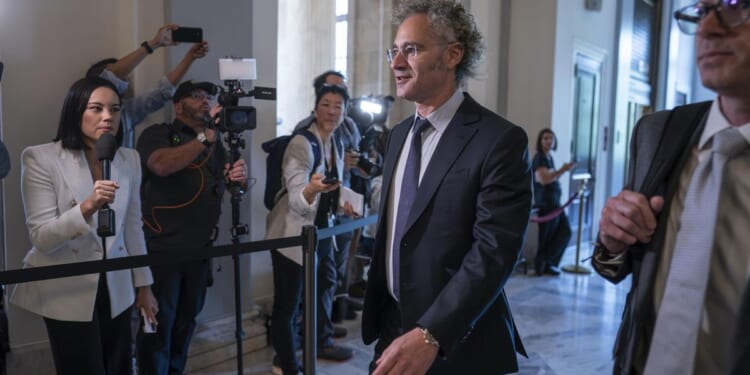
Top tech and government leaders will huddle in Washington next week to formulate plans to ensure the U.S. takes charge of the global artificial intelligence race and shapes emerging tech developments.
Officials from defense tech companies such as Palantir and Anduril plan to meet Wednesday with officials from the CIA, the Department of Homeland Security and congressional leaders, including Republican House Speaker Mike Johnson, at the Hill & Valley Forum.
The forum, divided into daytime panel discussions and an evening reception, is focused on AI security and promises to give a rare glimpse into how tech and government decision-makers from Capitol Hill to Silicon Valley are preparing for an AI makeover.
For example, a panel on “America’s Readiness for an AI Pearl Harbor” will feature the CIA’s chief technology officer, a top DHS policy official and Sen. Kyrsten Sinema, the Arizona independent who caucuses with Democrats.
Jacob Helberg, an organizer of the 200-plus person gathering, said Americans need to recognize that the U.S. is in an AI race with China and can no longer afford to treat national security as an afterthought in the competition.
Mr. Helberg, a top Palantir adviser who sits on the congressionally chartered U.S.-China Economic and Security Review Commission, said too much of the AI policy debate in Washington is focused on containing the risks raised by new AI breakthroughs.
“We have an adversary that is competing aggressively in the area of military AI and so that means that at home, we need to make sure that we’re not taking steps that’s going to slow us down,” he said. “We need to be moving as fast as we can in the development of military AI because we are in an AI race and a technology Cold War with China.”
By bringing scores of tech chiefs and venture capitalists together with lawmakers and senior officials, Mr. Helberg is hoping to drive the policy agenda and discussion in Washington that leads to concrete outcomes.
Panels have been scheduled on new military applications of AI from companies such as Anduril; Palantir Technology CEO Alex Karp discussing how AI has reshaped modern war from Israel to Ukraine; a look at the new space race with a SpaceX co-founder; and an assessment of the global AI power balance with top researchers from Anthropic and ScaleAI.
Two previous assemblies of the Hill & Valley Forum in recent years have produced draft congressional legislation and White House meetings, according to Mr. Helberg.
He said the White House National Security Council met in January with forum attendees on the role of emerging technologies in assisting Ukraine. A major defense bill has boosted funding for the Defense Innovation Unit, following discussions that Rep. Ken Calvert, California Republican, had at the forum. Mr. Calvert will be speaking at this year’s gathering.
In 2024, Mr. Helberg said the forum has expanded its outreach and will include representatives from the governments of Israel and Taiwan, as well as French businesses.
Christian Garrett, a forum organizer and investor at 137 Ventures, said Washington thinks of tech primarily as social media platforms and Big Tech companies, but the forum intends to give officials access to companies in other domains. Leaders from Gusto, an enterprise payroll software company, and Chainguard, a cybersecurity company, will be on hand, he said.
Mr. Garrett said Silicon Valley’s new chumminess with Washington reflects in part the fallout from Russia’s war in Ukraine showing the value of defense technology and from COVID-19 revealing weaknesses in the country’s supply chain and economic system.
“People saw how bad the technology was to get loans from the [Small Business Administration], people saw that we weren’t able to manufacture critical items, critical goods for front line workers, we had massive inventory delays and in our shipping and supply chains were completely reliant on other countries,” Mr. Garrett said. “And I think that was a big wake-up call for the reality that we didn’t have as robust of a system as we thought.”
Mr. Helberg said previous forums showed that the collaborative concept works and attracted intense interest across the tech and government sectors.
“I personally don’t know of a single other event out there that gets as many elected officials and tech executives in one place simultaneously, not at the World Economic Forum, not at the Munich Security Conference, nor at the Reagan Defense Forum,” Mr. Helberg said. “This is a very unique kind of gathering that I think reflects the appetite that people have in Silicon Valley to engage on policy issues, but it also reflects the growing appetite in Washington and the view that technology is playing a bigger and bigger role for our national security.”












